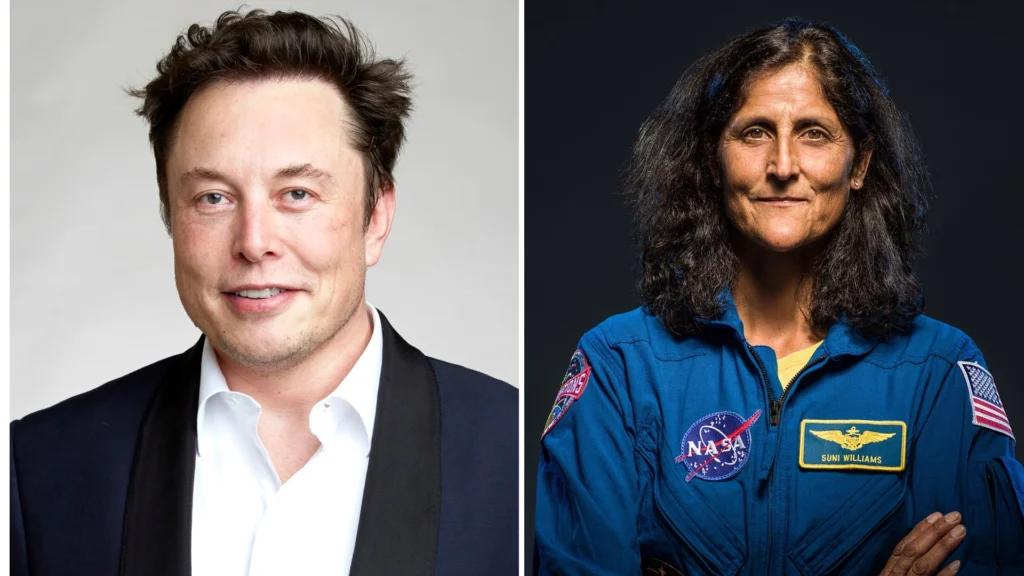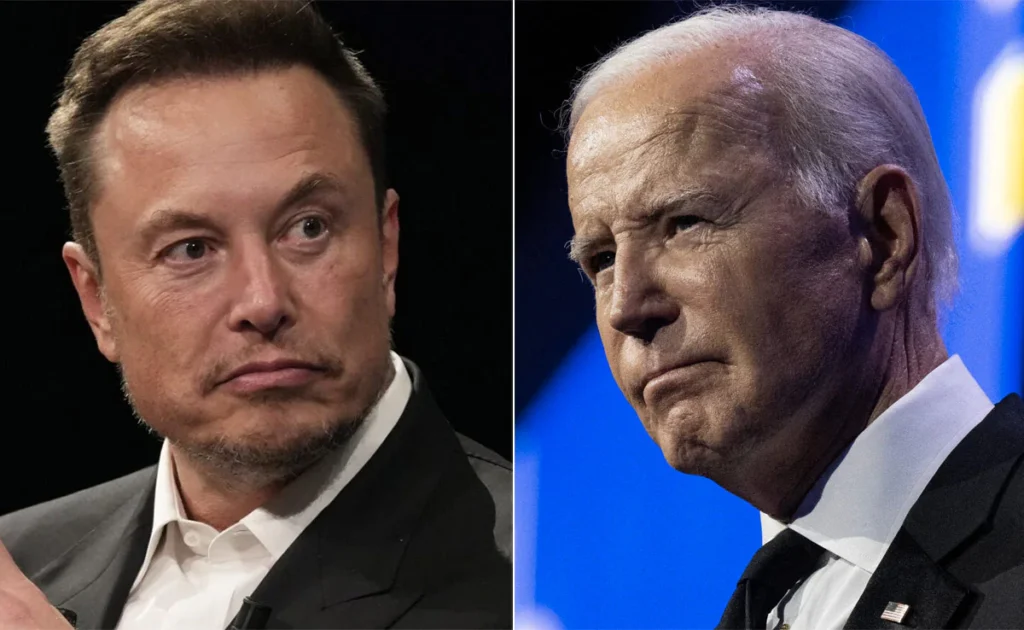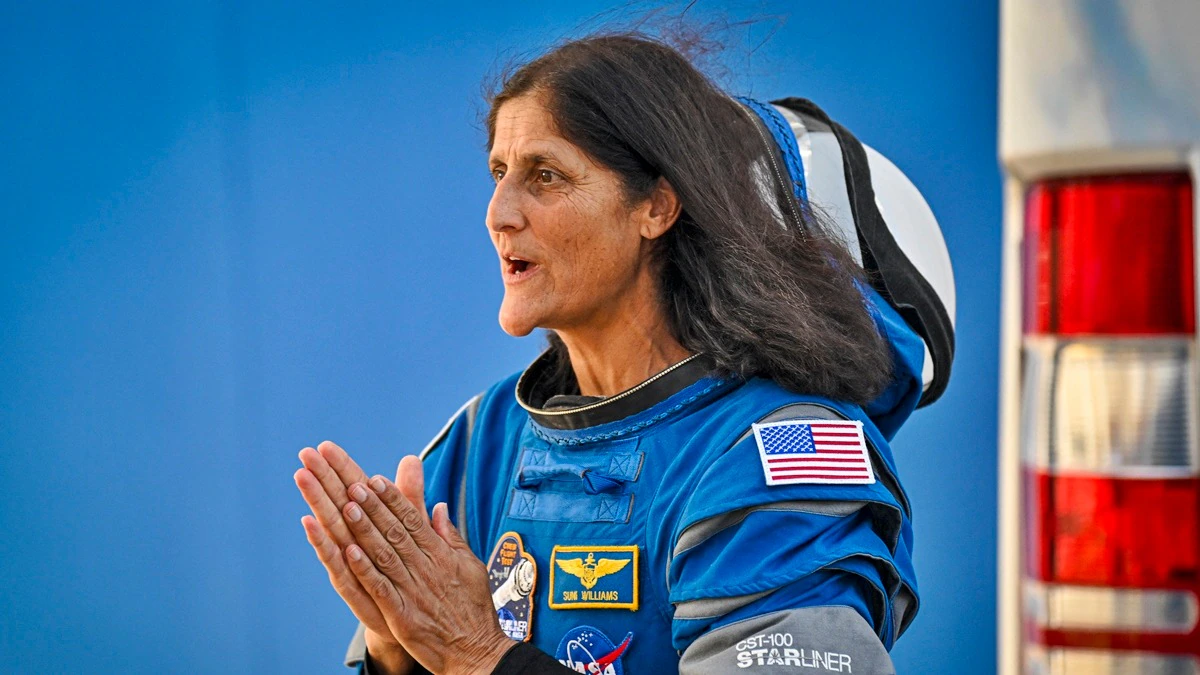In a dramatic turn of events, Elon Musk, the CEO of SpaceX, has publicly accused the Biden administration of blocking his company’s mission to bring astronaut Sunita Williams back to Earth. The statement has raised eyebrows across the aerospace and political communities, sparking a heated debate about the intersection of space exploration, government regulations, and private enterprise. This controversy revolves around a planned SpaceX mission to return Williams from the International Space Station (ISS) using the private spaceflight company’s Dragon spacecraft, a mission that, according to Musk, was blocked by the current administration.
The Background of Sunita Williams’ Mission
Sunita Williams, a veteran NASA astronaut, has spent an extensive amount of time aboard the ISS, contributing significantly to the advancement of space science. With her long tenure in space, she had hoped to return to Earth via SpaceX cutting-edge Dragon capsule, a spacecraft developed by Musk’s company. The mission was intended to showcase the growing capabilities of private spaceflight and to further cement the relationship between NASA and private aerospace companies like SpaceX, which has already made history with its successful crewed missions. However, the plan encountered a major roadblock when, according to Musk, the Biden administration interfered with the mission, citing unspecified reasons.
SpaceX’s Relationship with NASA and the Government
The accusations by Musk are not new in the context of the tension between private space companies and government regulations. SpaceX, under Musk’s leadership, has revolutionized the space industry, drastically reducing the cost of space exploration while achieving remarkable milestones, such as the first private company to send astronauts to space. Despite these achievements, Musk has consistently clashed with government agencies, particularly when it comes to issues of regulation and the balance of power between private entities and governmental oversight.
Musk’s Allegations Against the Biden Administration
According to Musk, the interference by the Biden administration stems from political and bureaucratic motives. He suggests that the administration, which has been historically cautious about privatization in sensitive sectors like space exploration, may have concerns about allowing a private company to carry out such a high-profile mission without government oversight. Musk’s accusations highlight the growing tension between the push for private sector involvement in space exploration and the desire for governmental control over space activities.
The Growing Debate Over Government and Private Space Exploration



At the heart of this dispute lies a broader question about the future of space exploration. NASA has increasingly turned to private companies like SpaceX to help meet its goals, particularly in the areas of crewed spaceflights and resupply missions to the ISS. SpaceX’s success with the Dragon spacecraft and its Falcon rocket series has made it a key partner for NASA, and the space agency has heavily relied on Musk’s company to ensure the continued operation of the ISS. Yet, despite the increasing reliance on private companies, the U.S. government has expressed reservations about completely outsourcing space missions to the private sector, citing national security concerns, international treaties, and the need for governmental oversight in sensitive space missions.
Musk’s Advocacy for Free-Market Solutions in Space Exploration
Musk’s accusations are also part of a broader narrative in which he has positioned himself as a vocal advocate for free-market solutions in the aerospace industry. Musk has long argued that private enterprise should be given more leeway to innovate and compete in areas traditionally dominated by government entities. He has consistently criticized bureaucratic inefficiencies within NASA and other government agencies, stating that such organizations often hinder the progress of space exploration through excessive regulation and slow decision-making processes. By contrast, SpaceX has thrived in the relatively less regulated environment of the private sector, pushing the boundaries of what is possible in terms of both technology and cost.
Public-Private Partnerships and the Future of Space Exploration
In addition to the political and regulatory challenges, the accusations also raise questions about the future of public-private partnerships in space exploration. While SpaceX and NASA have been successful collaborators, the friction between Musk and the Biden administration suggests that the relationship may face increasing challenges. Musk’s claim that the administration has blocked a mission is seen by some as an indication of the growing tensions between private enterprise and governmental control. This could have long-term implications for the future of space exploration, particularly as more private companies seek to stake their claim in the lucrative space industry.
Critics’ Concerns Over Privatization in Space Exploration
Critics of Musk’s position argue that government intervention in space missions is necessary to ensure the safety, security, and long-term viability of space exploration. They contend that while private companies like SpaceX play an essential role in advancing space technology, they should still operate within a framework of accountability and oversight. Furthermore, some suggest that the Biden administration’s actions may be motivated by concerns about the increasing concentration of power in a few private companies, especially in critical sectors like space exploration.
The Biden Administration’s Response and Possible Implications
In response to the allegations, the White House has yet to provide a detailed statement. However, it is likely that the administration will argue that its primary goal is to ensure the safety and success of space missions, particularly those involving human astronauts. Given the high-risk nature of spaceflight, it is understandable that the government would want to ensure that all missions meet stringent safety standards. Nonetheless, Musk’s accusations suggest a growing frustration with the perceived bureaucratic red tape that he believes stifles innovation and progress.
The Future of Space Exploration and Public-Private Collaboration
As the debate continues, the question remains whether private companies like SpaceX will continue to lead the way in space exploration or whether government regulation will continue to play a dominant role. The outcome of this conflict could have profound implications not only for the future of the U.S. space program but also for the broader space industry as a whole. Whether the Biden administration will eventually relent and allow SpaceX to carry out the mission remains to be seen, but one thing is clear: the stakes in the new space race are higher than ever.
FOLLOW:https://newsroom47.com/new-zealand-defeats-south-africa/
Newsroom 47
